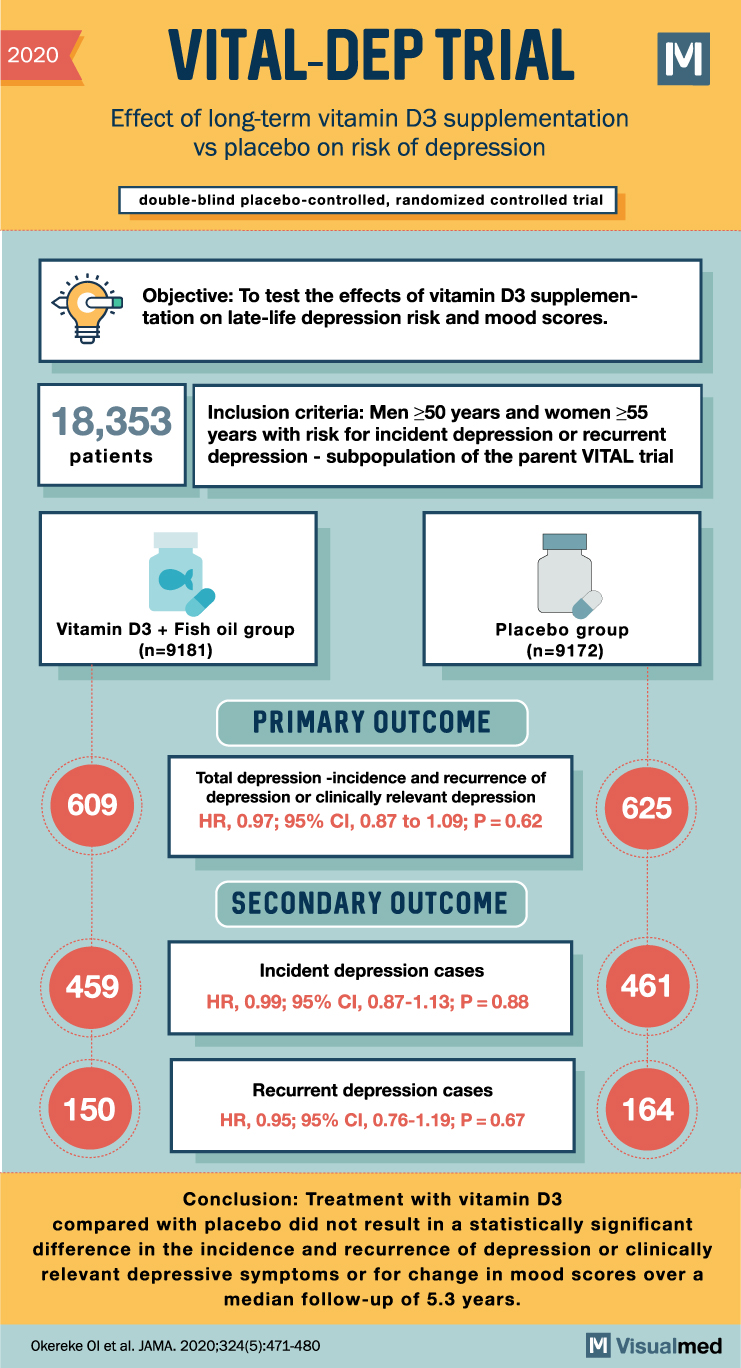
VITAL-DEP Trial Summary
The VITAL-DEP trial aimed to investigate whether long-term supplementation with vitamin D3 could prevent depression in the general adult population. The study included 18,353 adults aged 50 years or older without depression or clinically relevant depressive symptoms at the beginning of the trial. The participants were randomly assigned to receive either vitamin D3 supplementation or a placebo over a 5-year treatment period.
The primary outcomes assessed were the incidence and recurrence of depression or clinically relevant depressive symptoms, as well as changes in mood scores. The results showed that vitamin D3 supplementation did not lead to statistically significant differences compared to the placebo group in terms of depression risk or clinically relevant depressive symptoms (hazard ratio, 0.97). Additionally, there were no significant differences between the groups regarding changes in mood scores over the course of the study.
Among the 18,353 participants, with a mean age of 67.5 years, the median treatment duration was 5.3 years, and 90.5% completed the trial. The risk of depression or clinically relevant depressive symptoms was similar between the vitamin D3 group and the placebo group, with no significant variation in incidence or recurrence. The results did not indicate any significant differences in mood scores over time, with the mean change in the 8-item Patient Health Questionnaire depression scale (PHQ-8) score being negligible.
In conclusion, the VITAL-DEP trial found no evidence to support the use of vitamin D3 supplementation in the prevention of depression among adults aged 50 years or older without clinically relevant depressive symptoms at baseline. The study’s results did not demonstrate a significant difference in the incidence and recurrence of depression or clinically relevant depressive symptoms between the vitamin D3 and placebo groups. Furthermore, there were no notable variations in mood scores over the median follow-up period of 5.3 years. Therefore, based on these findings, the use of vitamin D3 supplementation in adults to prevent depression is not supported.